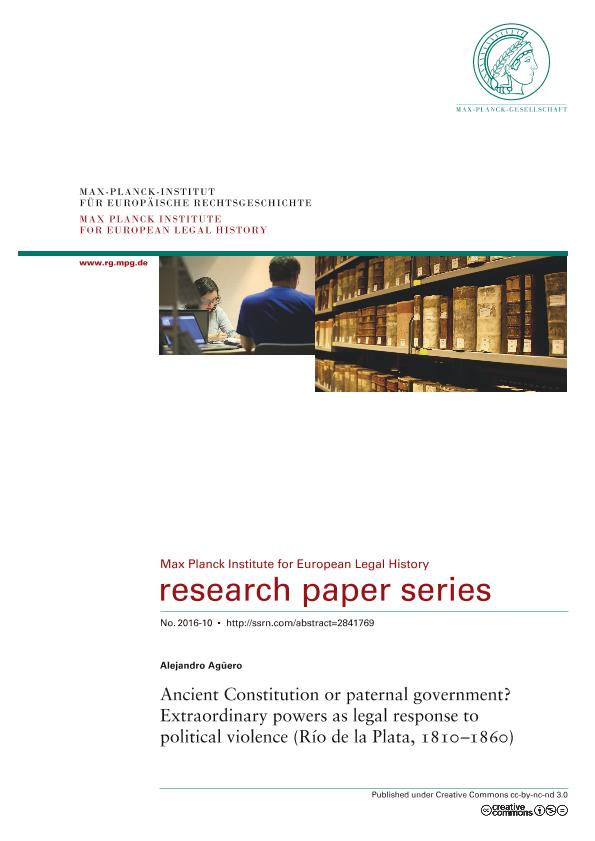Artículo
Ancient constitution or paternal government? Extraordinary powers as legal response to political violence (Río de la Plata, 1810-1860)
Fecha de publicación:
09/2016
Editorial:
Social Science Research Network (SSRN) eLibrary
Revista:
Max Planck Institute for European Legal History. Research Paper Series
ISSN:
1619-4993
e-ISSN:
2195-9617
Idioma:
Inglés
Tipo de recurso:
Artículo publicado
Clasificación temática:
Resumen
The regime of caudillos is a common subject in the classic analysis of the first half of the 19th century in Latin America. In the case of Río de la Plata, the experience of caudillos has been subject of academic revision. Scholars have discussed about the cultural background of this phenomena, contrasting their outcomes with the typical picture of a ?lawless realm?. Within this debate, they have proposed new interpretations on the classic topic of the extraordinary powers granted to governors during this period. Considering the extraordinary powers as a sort of legal response to political violence, this paper deals with the historiographical characterizations of such powers, trying to outline a different framework of interpretation. At first, in order to define the ?political violence?, we consider the possible normative meanings of the notion of political crime and its relationship with the diverse cultural backgrounds, pointing out some relevant features of our context of study. In the second place, we analyze the historiographical approaches on caudillo´s regimes and on their extraordinary powers. Rejecting the theses according to which these ?extraordinary powers? took part of a presumed ?ancient constitution?, we suggest that they were rooted both, in a paternal conception of the sovereign, and in the role assigned to the adjectives ordinary / extraordinary in the traditional legal language.NOTA: El Issn corresponde a la revista Legal History, ya que la Research Paper Series se publica en open access en la Social Science Research Network (SSRN) eLibrary.
Archivos asociados
Licencia
Identificadores
Colecciones
Articulos(CCT - CORDOBA)
Articulos de CTRO.CIENTIFICO TECNOL.CONICET - CORDOBA
Articulos de CTRO.CIENTIFICO TECNOL.CONICET - CORDOBA
Citación
Aguero, Alejandro; Ancient constitution or paternal government? Extraordinary powers as legal response to political violence (Río de la Plata, 1810-1860); Social Science Research Network (SSRN) eLibrary; Max Planck Institute for European Legal History. Research Paper Series; 2016; 10; 9-2016; 1-31
Compartir




